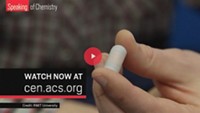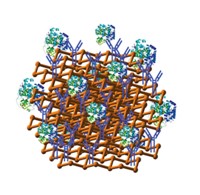Advertisement
Grab your lab coat. Let's get started
Welcome!
Welcome!
Create an account below to get 6 C&EN articles per month, receive newsletters and more - all free.
It seems this is your first time logging in online. Please enter the following information to continue.
As an ACS member you automatically get access to this site. All we need is few more details to create your reading experience.
Not you? Sign in with a different account.
Not you? Sign in with a different account.
ERROR 1
ERROR 1
ERROR 2
ERROR 2
ERROR 2
ERROR 2
ERROR 2
Password and Confirm password must match.
If you have an ACS member number, please enter it here so we can link this account to your membership. (optional)
ERROR 2
ACS values your privacy. By submitting your information, you are gaining access to C&EN and subscribing to our weekly newsletter. We use the information you provide to make your reading experience better, and we will never sell your data to third party members.
Analytical Chemistry
Nanotubes Sniff Out Kidney Failure
Scientists use a nanotube-based sensor array to detect VOCs in a breath test that can identify rats with chronic renal disease
by Bethany Halford
May 11, 2009
| A version of this story appeared in
Volume 87, Issue 19
Getting tested for kidney disease could one day be as easy as exhaling, thanks to new technology developed by researchers in Israel. Diagnosing renal illnesses currently involves urine and blood tests, with the most definitive diagnoses requiring a kidney biopsy. Hossam Haick and coworkers at Technion—Israel Institute of Technology have shown they can differentiate between healthy rats and rats with chronic renal failure by using nanotube-based sensors to test the rats' breath for specific volatile organic compounds (ACS Nano, DOI: 10.1021/nn9001775). Using gas chromatography and mass spectrometry, the researchers identified 15 compounds in the breath of both healthy and diseased rats, as well as 27 compounds that only appear in the breath of rats with chronic renal failure. They then designed an array of chemiresistive networks of single-walled carbon nanotube sensors capable of distinguishing between the two distinct breath signatures. Such discrimination "provides expectations for future capabilities for diagnosis, detection, and screening various stages of kidney disease," the researchers note, "especially in the early stages of the disease, where it is possible to control blood pressure and protein intake to slow the progression."




Join the conversation
Contact the reporter
Submit a Letter to the Editor for publication
Engage with us on Twitter